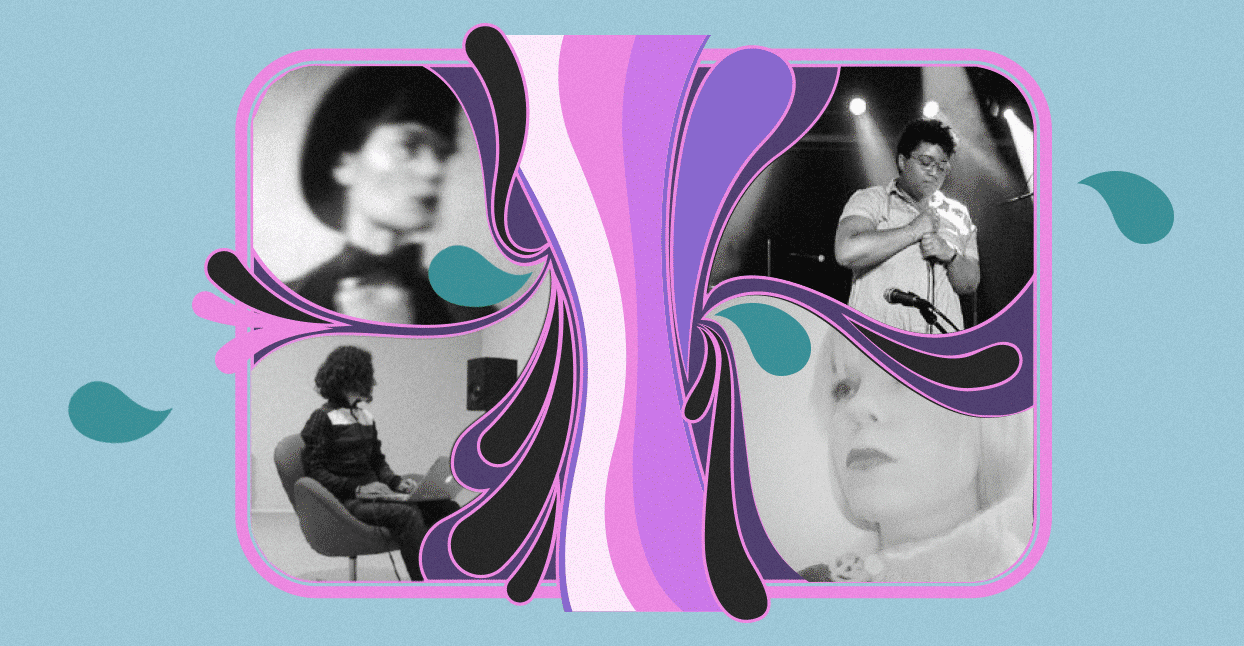
On the surface, Washington, DC seems to be a city of transients—waves of people flowing in and out of the area to the various tempos of congressional terms, academic contracts, and non-profit grants. The mechanisms of government and academia that propel this tide, coupled with skyrocketing rents and hyperspeed gentrification, don’t exactly encourage the kind of community building that would typically lead to a thriving music scene. But the city’s homegrown popular music offers a counter-narrative; the rapturous, immutable beat of go-go and the socially conscious punk of Dischord Records offer spaces for both congregation and opposition. There’s also the city’s rich history of jazz, which can be found on DC’s excellent radio station WPFW, which sports the tagline “Your Station for Jazz & Justice.”
Though it’s less acknowledged on a national level, there is also a thriving underground community of musicians exploring adventurous, left-field, and avant-garde forms of electronic music, jazz, rap, and punk that similarly challenge the notion of DC as a city of isolated, ambitious bureaucrats. There is a refreshing lack of barriers between these worlds, and a spirit of collaboration that exists across genres. This sub-underground of like-minded seekers is centered around the community and art space Rhizome in Takoma, at the very most northern edge of the District itself, though there have been past hubs like the roving festival Sonic Circuits and the now-defunct space Union Arts.
Below, we take a look at some of the local musicians that have been a part of that journey. If you like what you hear, and want to dive even deeper into the world of weird DC, be sure to check out PraxisCat, Twin Jude, Coven Tree, the Atlantic Rhythms label, Future Times’ new FIGS compilation and Dolo 4 by Dolo Percussion.
Analog Tara
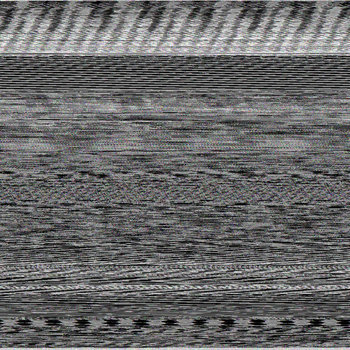

Tara Rodgers has been recording and performing in DC as Analog Tara for nine years, following time spent in the electronic music scenes of New York, San Francisco, and Montreal. Her background as a self-taught jazz and classical pianist seeps into her alternately glitchy, ambient, and beat-heavy electronic music, especially her recent release sketches with piano + analog noise, released under her own name. Rodgers’ approach varies widely from release to release, performance to performance, spanning electro-acoustic drift, atmospheric techno, and sublime layers of droning synth. sketches features sinuous, jazz-inflected improvisations on grand piano, augmented with layers of buzzing, skittering analog electronics.
“Keyboard improvisation is still the foundation of most of my music, even for the percussive elements,” she says. “And I’m often interested in the same kinds of musical questions regardless of genre. Like creating harmonic depth and complexity in the music, using algorithmic variations or layers of sounds. And lately, with both ambient and beat-driven music, I’m very concerned with creating atmospheres that can be deeply felt in the performance space.”
Rodgers’ command over form extends to her techno work, including last year’s Fundamentals EP. She is also the author of Pink Noises: Women In Electronic Music and Sound, which led an international debate over inclusivity in underground dance music scenes. These days, she’s working on a new techno release and workshoping new ambient compositions around DC, including a recent performance at Rhizome with Gardner, Dura, and Aaron Leitko of Geo Rip and Protect-U.
Dura


As Dura, Mattson Ogg crafts quiet, contemplative music for guitar, creating dense, atmospheric soundscapes that play with a balance of intimacy and expansiveness. Using an array of pedals, he often obscures the attack of his fingers on the strings, smearing the tones into a blanket of sound that is peaceful and enveloping. By incorporating environmental recordings into his albums, Ogg gives his music a sense of physical space in the world, eschewing the more cosmic inclinations of other ambient musicians. He started out experimenting with synthesizers and laptop before returning to guitar-based work, informed by his own background in indie rock.
“I’ve actually been trying to be more of a guitar player,” he says. “Lately I’ve been into being able to pick up the guitar and achieving that space, depth, and wash in a very hands-on way.” The physical property of the instrument has been an inspiration for him, inspired by his experience seeing free jazz at Rhizome, “hearing those instruments interacting with a room” rather than on an electronic console.
Repetition Suppression, his 2018 release on Scissor Tail, is a folk-inflected record that takes loose inspiration from the American Primitive tradition, Ogg’s clean guitar hanging over the soft buzz of amplifier and field recordings from his native Silver Spring, MD (located just north of the District). Reverberation Hymns, his most recent full-length on Garden Portal, is a pensive collection of purely ambient works, spectral and ruminative. He’s also working on a recorded collaboration with Jax Deluca, an in-studio offshoot of their recent group performances at Rhizome and the Smithsonian American Art Museum.
Geo Rip & Protect-U


Cassette
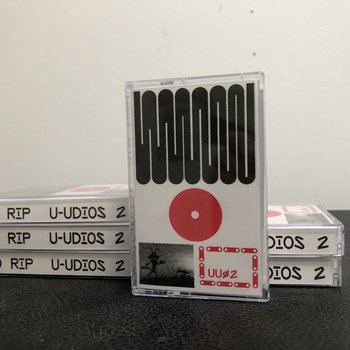

Aaron Leitko and Mike Petillo were punk musicians looking for a new way forward when they were introduced to synthesis and electronic music, forming Protect-U as a vehicle to probe the boundaries of techno and house. Encouraged and supported by Max D and Future Times in the waning days of the aughts, they became known for an approach to dance music that focused on live performance, the steady four-on-the-floor kick anchoring squelchy synths and spacey melodic lines. They approach dance music with a punk spirit, challenging the norms of what is club-friendly on albums and 12”s on Future Times and Planet Mu, eventually founding the tape label U-Udios in 2017.
Geo Rip is an extension of the framework Leitko and Petillo laid down with Protect-U, bringing in Baltimore’s John Jones (of Nerftoss and sludge-rock band Dope Body) to augment the duo’s slippery, kosmische sound. Synths and samples collide throughout the trio’s releases, which are either full board feeds of fully-improvised live shows (a July performance opening for noise-techno pioneer Container was recently released as Live at Rhizome) or meticulously edited cross-sections of studio jams. It is buoyant music, adjacent to the dancefloor, but incorporating a wide array of influences from across the electronic music spectrum.
“Geo Rip is kind of a ‘jam band,’ though I’m not sure Mike and John love that term,” explains Leitko. “The three of us just bring whatever we feel like bringing to it — whether it’s samples, synths, or anything else. In a way, it lands halfway between a live performance and a DJ set. The samples make it possible to pivot quickly between genres, feels, and signifiers. The synths are, in a way, more static, but they provide an alien sensibility and a mutant edge.”
Janel Leppin

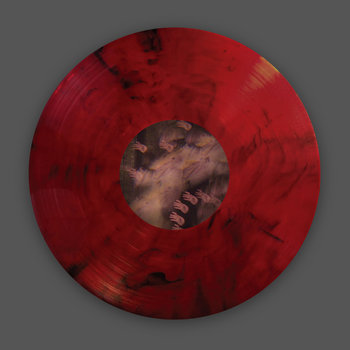

Vinyl LP

Though her last solo recording was her 2017 full-length American God, cellist Janel Leppin has been incredibly active in DC over the past several years as a performer and guest with other ensembles and bands. In addition to playing bass on Priests’ latest album The Seduction of Kansas, Leppin has also recorded with Marissa Nadler and The Messthetics (the instrumental trio of Fugazi alums Brendan Canty and Joe Lally, plus guitarist Anthony Pirog).
While American God and much of her other solo work as Mellow Diamond is more song-oriented—which is to say, not especially avant-garde—Leppin is a bonafide member of DC’s jazz and free music elite nonetheless. A performance with a trio earlier this year with Pirog and saxophonist Jarrett Gilgore, opening for prominent trumpet player Nate Wooley, featured Leppin looping and manipulating her cello using an array of electronics. Her approach of improvising is deeply intuitive without being predictable, and yet, thanks to her past work as a chamber musician, she’s arguably the most accessible artist on this list.
Mock Identity
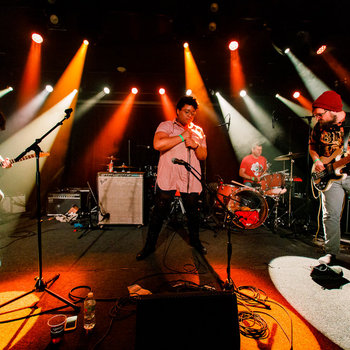

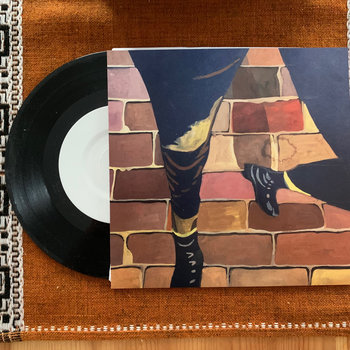
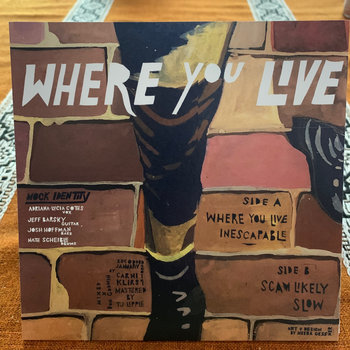

7" Vinyl



Mock Identity work within the established legacy of punk in the capital, but also push the boundaries of what a punk band can be. Drummer Nate Schieble, vocalist Adriana-Lucia Cotes, bassist Joshua Hoffman, and guitarist Jeff Barsky share a deep interest in left-field music, a passion which makes itself known in the band’s tightly wound, overtly dissonant, no-wave inspired riffing and collaborative approach. All are involved in the Rhizome scene to varying degrees; Schieble, Cotes, and Barsky all came to the group with adventurous solo projects and other collaborations with experimental musicians under their belts. The band’s newest 7”, Where You Live, is an example of the band’s penchant for writing songs that are as exploratory as they are exhilarating.
“I feel like that having such an interest [in experimental music] exemplifies shared artistic goals, principles, philosophies—always reaching, pushing boundaries, keeping up with new music, and not working within a bubble,” says Schieble, who released Indices, a gorgeous cassette of solo tape-loop explorations, earlier this year. He is also one of the most dynamic, expressive free improvising drummers in the area, playing what he describes as a “falling down the stairs sort of drumming.” Barsky records as Insect Factory, performing enveloping solo drone sets with an array of pedals, while Cotes writes searching avant-pop as Antonia and occasionally performs improvised electronic sets.
The exploratory aspect of their musical personalities comes out in the band’s songwriting process as well. “One person comes with a riff idea, and then we kind of experiment and improvise on it for a while until something more solid comes out,” says Hoffman. “It feels to me like how a group of experimental musicians will get together and perform an improv set, but it feels cohesive because we are confident and solid with our playing and direction.” Barsky concurs: “When an idea presents itself, I try to pull on the thread with everyone else to make it unravel and learn more about it and explore it.”
Model Home
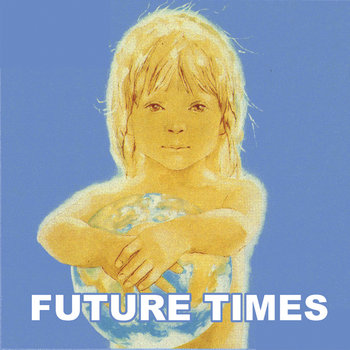

Model Home makes nebulous, restless music that occupies one of the most unique niches in the DC underground: raw, abstracted electronics, spliced with improvised spoken word. At first blush, the collaboration between Pat Cain on electronics and vocalist Nappy Nappa seems like the traditional producer-rapper relationship, but the music is anything but conventional; it doesn’t fit into any pre-established stylistic mold, and can change dramatically based on where they’re playing, and with whom.
On 10, Model’s Home most recent album (their fourth release to arrive this year) churning synths and spastically flailing drum hits collide with Nappa’s unhurried, abstruse lyrics, with adherence to rhythm arbitrarily deployed. Consider it an extension of their unpredictable live shows; a recent performance at the Smithsonian American Art Museum found Nappa reading from a hand-written scroll so long it was dragging on the floor, while a trumpet player roamed the audience and a dancer performed on a cloth sheet painted with hexagonal runes.
The duo’s most impactful release this year is arguably 8, their debut for the local electronic music label Future Times, run by renowned beatmaker Max D (and their only album not self-released). On 8, Cain and Nappa are joined by Max D under his Dolo Percussion alias on almost every track. The resulting beats feel crisp and highly rendered, if fully divorced from any kind of grid, equal parts Autechre and trap. On other Model Home releases, Nappa’s vocals often seem subaquatic, immersed in the chaotic, sputtering synths and samples; 8, by contrast, situates those stream-of-consciousness proclamations are front and center. It’s a winning approach.
Luke Stewart
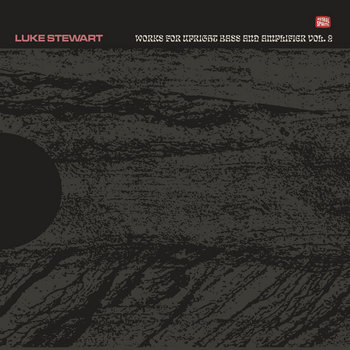




Cassette



Bassist Luke Stewart is a chameleonic polymath, and one of the most prolific improvisers in DC. A master of both upright and electric bass, he has performed numerous one-off collaborations at forward-thinking venue Rhizome this year, most notably with the Baltimore-based improvisor Sarah Hughes in February. In this year alone, he toured the world as a member of Irreversible Entanglements, released new albums with the free jazz trio Heart of the Ghost and the fuzzed-out, politically-engaged duo Blacks Myths, and lent his talents to the acclaimed saxophonist James Brandon Lewis’ album An UnRuly Manifesto, released back in February.
Over the past several years, Stewart has also developed a unique way of using upright bass and an amplifier to create spontaneous, electrified compositions that intersect noise, drone, and free jazz. On his tape from 2018, Works for Upright Bass and Amplifier, Stewart weaves the acoustic tones from his bass with skillfully controlled feedback, blurring the tones until they become unrecognizable. The effect is, simply put, mesmerizing.
“The DC community has offered me the chance to pursue several creative paths with a real sense of openness,” Stewart says, explaining how the fluidity present between different worlds in DC has encouraged his omnivorous approach. “I guess since I have been active in the city, I’ve always tried to explore many different scenes and approaches to music.” Rhizome has been especially impactful: “This is where there has been the chance for so many communities to interact and build.”







